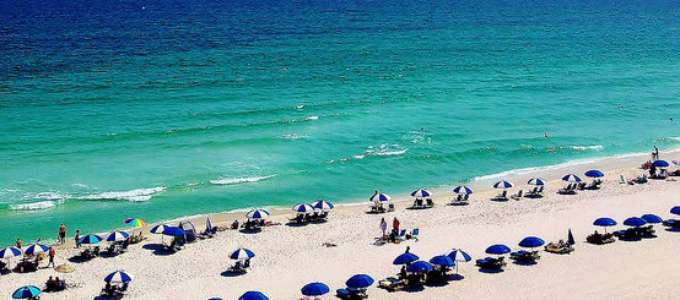In June, I did something I hadn’t done in 10 years: I went on vacation.
I mean it — a real vacation: One week. Beaches. Pools. The ocean. I took a plane to get there. It was even almost in a foreign country (Puerto Rico). And I only checked my email twice!
Why did it take me nearly a decade to go on a vacation?
As I sat and pondered the issue — while laying on a hammock just off a three-tiered swimming pool with a swim-up bar adjacent to the Atlantic Ocean with the only inconvenience being that I had to maneuver past an iguana or two to get a frozen margarita refill — I couldn’t come up with a good answer.
I suppose there were always reasons. Vacations cost money; there was a lot going on at work; I needed to save PTO for family events; there was a lot going on at work; I’d rather enjoy Chicago; there was a lot going on at work. Sensing a theme?
Like most people, work always seems to get in the way of completely unplugging and recharging the batteries in a relaxing, far-away place.
It turns out many working Americans — despite being given an average of 16 paid vacation and holiday days per year, according to a 2013 study by Oxford Economics — are also keen on skipping vacation. In fact, according to the study, U.S. workers combined let nearly 170 million vacation days go unused in 2013. That’s roughly $52.4 billion worth of paid vacation.
Companies want employees to take vacations, right? So why aren’t we taking advantage?
Perhaps it’s because the idea of vacation is still relatively new in this country’s history compared with European countries. According to the Smithsonian, it wasn’t until after the Industrial Revolution in the early 1900s that America began building its leisured classes — something Europeans had in place since the 18th century.
Heck, it wasn’t until 1926 that Henry Ford standardized the idea of a five-day workweek (instead of the normal six days), thus creating the concept of the modern-day “weekend.” And in 1938, President Franklin Delano Roosevelt signed into law the Fair Labor Standards Act, which established the five-day, 40-hour workweek.
Then there’s this little fact that Americans, including me, are quite proud of: We tend to work harder than everyone else. It’s what makes our economy among the best, if not the best, in the world.
Today’s business environment is built with these ideals in mind, and advances in technology have only driven this culture to an extreme, as people can work around the clock from anywhere.
Still, time away from work is important. From a casual 10-minute break during the workday to a 10-day vacation on a beach in Puerto Rico, time away is necessary for employees to not only recharge their bodies and ease stress but also stimulate innovation, learning and, ultimately, productivity.
Giving the brain time and space to process and relax enables clearer thinking, leading to new ideas and more focused work once back on the job.
Digital note-taking service Evernote Corp. is buying into this notion so much that it’s not just offering employees unlimited vacation but also giving them $1,000 each year if they take a week off.
So take it from a guy who just rediscovered the virtues of vacation. This summer, drop the excuses. Get out. Get away. Recharge. And don’t apologize for it.
You’ll thank me as you’re dodging iguanas to get your next frozen margarita.















